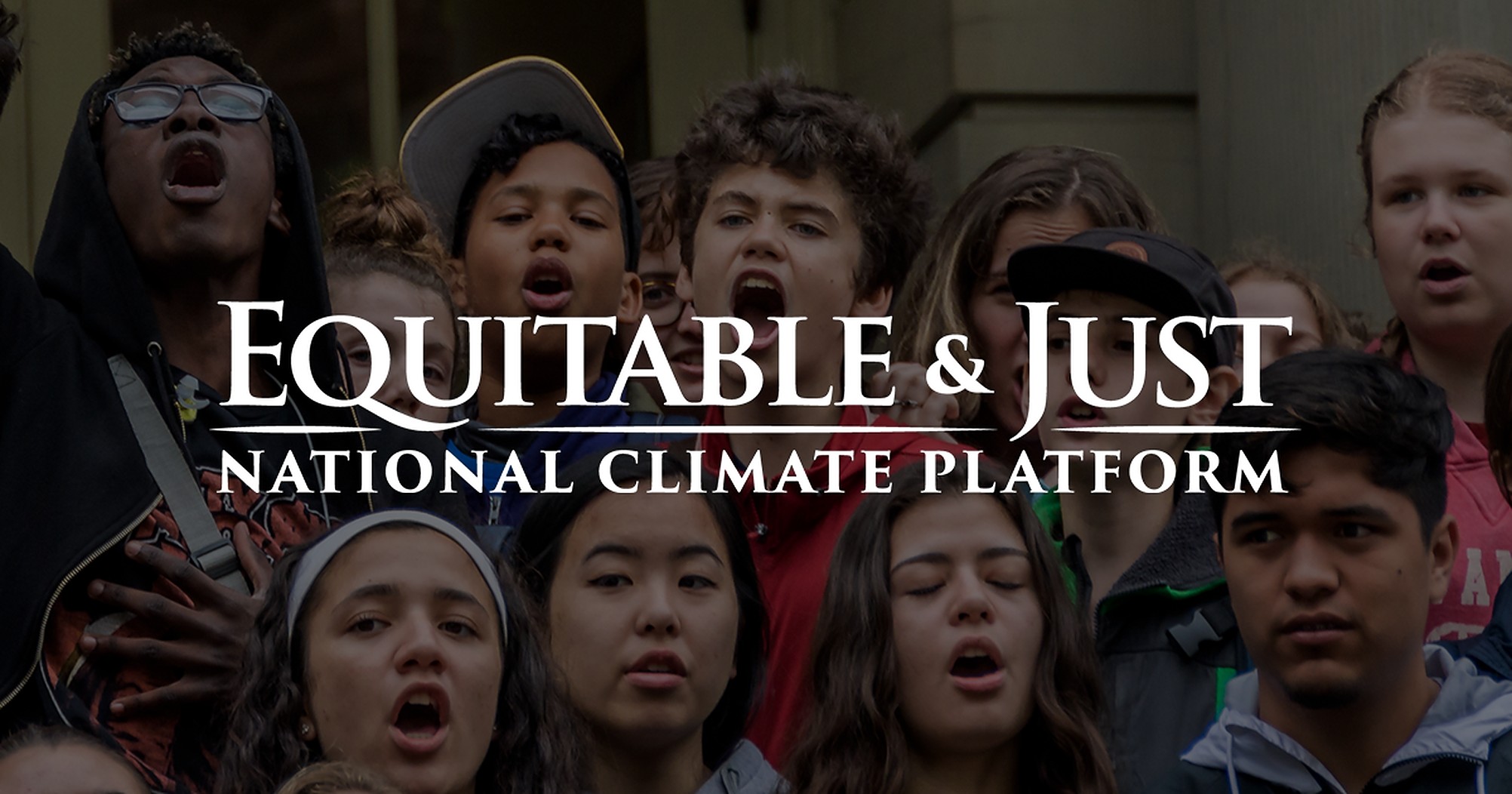Today, the Sierra Club joined forces with a broad coalition of environmental justice and national environmental groups to release, for the first time, a just and equitable national climate platform. Learn more at AJustClimate.org.
Why? Because for Indigenous, people of color, and low-income communities, climate change is not a new crisis. As climate change intensifies, these communities are already facing the highest levels of toxic pollution, more powerful storms and floods, more intense heat waves, more deadly wildfires, more extreme droughts, and other devastating effects of the climate crisis. We’re joining together to recognize the fact that climate action is incomplete if it fails to address the extreme conditions facing frontline communities.
Furthermore, the opportunities presented by climate action also must be engaged in a way that puts environmental justice—and environmental justice leaders—first. As we transition away from fossil fuels to an economy powered by clean energy, we can’t afford to duplicate the injustice of the status quo: exploited and poisoned communities, racism, unsafe workplaces, low wages, and other forms of injustice. That’s why this new platform calls for ambitious climate solutions that acknowledge and address the legacy of pollution, other environmental harms, and inequity in overburdened communities.
Today’s historic platform acknowledges that the goals of economic, racial, climate, and environmental justice are shared among environmental justice and national environmental organizations. It identifies key areas of alignment between these groups, including:
- A healthy climate and air quality for all;
- Access to reliable, affordable and sustainable electricity, water, and transportation for every community;
- An inclusive, just, and pollution-free energy economy with high-quality jobs; and
- Safe, healthy communities and infrastructure.
The Sierra Club has been deeply engaged with environmental justice communities for decades and created its own environmental justice program in the early 90s. We’ve worked with communities across the nation to address the systematic racism and exclusion they have faced. Increasingly, that work has been guided by the Jemez Principles and additional environmental justice principles approved by the Sierra Club’s Board of Directors, and it has been implemented to tackle issues ranging from the border wall to toxic pipelines to local air and water pollution.
Today’s platform, however, marks the first time that environmental justice leaders and national environmental groups have united to jointly define national climate policy priorities. These groups came together because they share common goals for the future of the planet, including that all people and communities have the right to breathe clean air and access healthy food, live free of dangerous levels of toxic pollution, and enjoy the benefits of a prosperous and vibrant clean energy economy. The platform represents historic progress in the long and hard-fought effort by environmental justice advocates to include environmental justice as a core goal of the national environmental and climate policy agenda.
The just and equitable national climate platform acknowledges that improving the public health and well-being of all communities goes hand in hand with tackling the climate crisis. It makes no compromises—encouraging policy leaders to put our nation on an ambitious emissions reduction path in order to contribute equitably to global efforts to limit global warming to 1.5 degrees Celsius. To be successful, we must firmly be on this path by 2030.
Communities of color, Indigenous, and low-income communities have always led the way in crafting policy solutions that have racial, economic, and social justice at their core. As society’s wealthiest few continue to amass vast resources and leave everyone else behind, this is a critical moment to define bold and equitable climate solutions that address the legacy of environmental injustice rather than exacerbate this inequality.
We believe environmental justice organizations should be front and center in all policy, stakeholder levels, and that all legal means should be employed to remedy and mitigate the unaddressed and unfair pollution burdens in these communities. These organizations and communities should also receive funding and resource opportunities equivalent to the historically mainstream environmental organizations.
By advancing this bold platform together, our goal is to fundamentally transform the conversation, and the reality, of how we work to tackle the climate crisis and environmental justice in this country.
